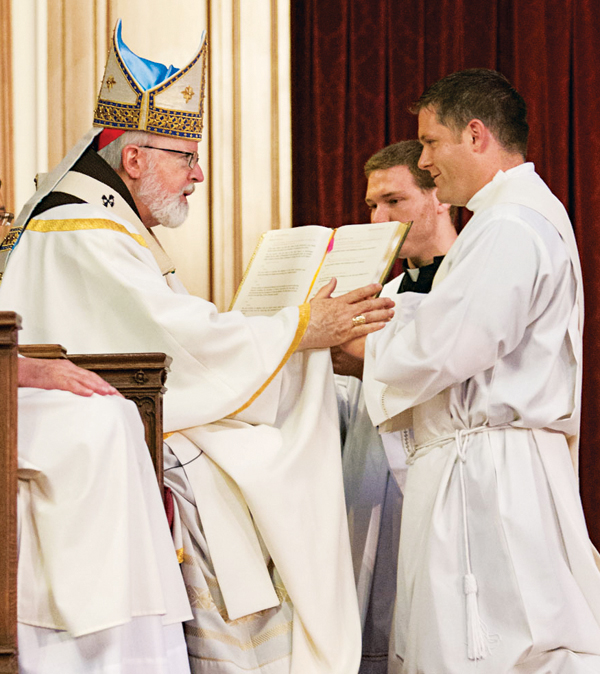Cardinal Seán O’Malley’s Papal Prospects Are Rising
Cardinal Seán Patrick O’Malley ordaining a new priest of the Archdiocese of Boston. Photo by Gregory L. Tracy
John L. Allen Jr. of the National Catholic Reporter wrote a lengthy piece examining the buzz building in the Italian press around Cardinal Seán O’Malley, the leader of the Archdiocese of Boston. In many ways, Allen points out, O’Malley’s prospects seem unlikely on the surface: he’s an American (and conventional wisdom suggests “Americans already have too much power,” Allen writes); he’s not even the most prominent American cardinal—that’d be New York’s Cardinal Timothy Dolan; he’s a member of the Capuchins (a religious order that hasn’t had a pope since the 19th century); he’s not seen as someone striving for power; and he’s not deeply connected in the Vatican.
But dig a little deeper, and Cardinal O’Malley has numerous strengths: He has one of the best records of any cardinal for cleaning up the sexual abuse scandal; he’s launched a “New Evangelization” effort to bring former Catholics back into the fold; he (or someone on his staff) is familiar with technology like Twitter and blogging; and he can speak seven languages, which is awfully helpful for worldy outreach. All of those are pretty valuable skills for a Pope in 2013.
One question is: Does he want it? As Boston College’s Thomas Grome told the Boston Herald today: “There are 117 cardinals, and 116 of them want to be pope. I would say the only one that doesn’t want to be pope is Seán O’Malley … I don’t think he would be looking for the trappings of power.”
But the very fact that he might not want to become pope might be the very best reason to make him the pope. The Vatican, and the Catholic Church in general, spent the last few decades trying to maintain a hold on power, which has caused it to make some truly terrible decisions—like, for example, siding with abusive priests and not child victims. A more humble man—one not interested in power, but in its people—just might be the fresh start that the Church needs.



